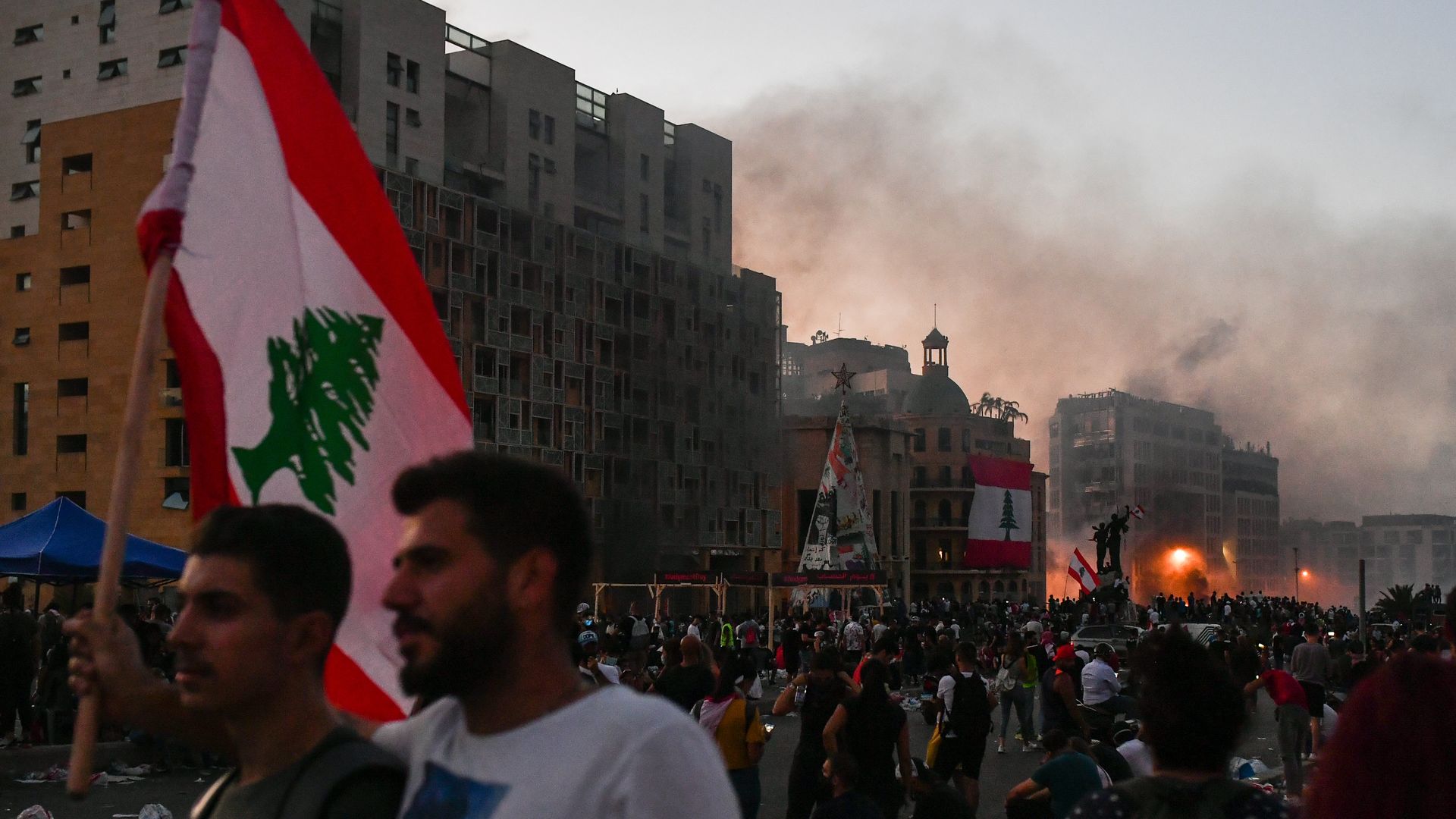Lebanon's prime minister resigns in wake of deadly explosion
Add Axios as your preferred source to
see more of our stories on Google.

Protests in Beirut. Photo: Maxim Grigoryev/TASS via Getty
Lebanon's prime minister and cabinet have resigned amid massive protests in the aftermath of a deadly explosion in Beirut that killed more than 160 people, injured 6,000 and left roughly 250,000 homeless.
Why it matters: Protesters blame the incompetence of the ruling elite — widely viewed as corrupt — for the disaster. The unstable and deeply distrusted government will remain in place in a caretaker capacity until a new prime minister is selected.
Driving the news: Three cabinet ministers resigned in recent days, making Prime Minister Hassan Diab's position increasingly untenable. The entire cabinet resigned on Monday, Health Minister Hamad Hassan told reporters. Diab then addressed the nation to offer his own resignation. He took office in December.
"I discovered that corruption is larger than the state, and that the state cannot overpower it."— Prime Minister Hassan Diab
Between the lines: "[T]he resignation of Lebanon's government does not mean early elections. It means the appointment of a new prime minister by the existing parliament, and all the political issues that come with it," the Economist's Gregg Carlstrom points out.
- Lebanese politics is a corrupt and generally ineffective balancing act between the interests of powerful factions, including Hezbollah.
- The militant group dominates Lebanon's parliament, and its ally Iran has warned that it must not be sidelined as Western governments tie recovery aid to political reforms.
The big picture: Lebanon was already suffering through the coronavirus pandemic and a crippling financial crisis before last Tuesday's explosion, and many government services — from garbage collection to electricity — were limited or lacking altogether.
- Then came the explosion of 2,750 tons of ammonium nitrate. Protesters blame corruption and incompetence for it having been left insufficiently secured in Beirut's port for nearly seven years. They have called for the entire ruling elite to fall.
- An international aid conference on Sunday raised $300 million in pledges from countries and international organizations, but leaders warned the money would not be disbursed without reforms of Lebanon's politics and economy, per the AP.
Go deeper: What's next for Lebanon after the Beirut explosion
